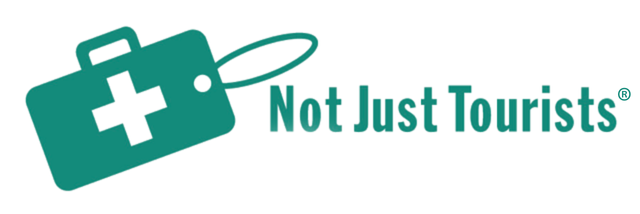Q. How do I get a suitcase?
A. Just fill out the Online Traveler Form!
Q. Is this legal?
A. Yes. Our donations are classified as humanitarian aid and are not being sent for resale.
Q. Does the donation suitcase count as part of my baggage allowance?
A. Yes. However, some air carriers will allow you to carry extra weight if it’s humanitarian aid. To check, simply visit the “Airline Baggage – Humanitarian Aid Policies” page under the “What We Do” tab at the top.
Q. Can I look at the contents of each suitcase?
A. Yes. In fact, we encourage that you empty the suitcase and then repack it. This way, you’ll be able to truthfully tell officials at the airport that you packed all your luggage.
Q. Are there any narcotics or controlled drugs in the suitcases?
A. No. As stated on the “Donate Medical Supplies” page, we do not accept or send any narcotics or controlled drugs (a narcotic is a drug that relieves pain and causes drowsiness, stupor, or insensibility).
Q. Do I need to declare the suitcase at Canadian/ US/ UK customs?
A. No. However, each suitcase contains a letter detailing both the contents of the suitcase and its humanitarian purpose. Oftentimes, luggage is waved through, but Customs officers are able to inspect your luggage if they want.
Q. Once in the donor country, what do I do with the suitcase?
A. We send donations to health clinics and hospitals. We will try to send you to a location close to where you will be staying and provide you with all the information needed to deliver the donations, but you are responsible for getting the donations to the designated recipient. The intention is the get the suitcases to those in most need so please DO NOT leave them with your resort doctor or give them to another party for delivery other than the facility in need.
Q. Is it easy to make the delivery?
A. Typically it is quite easy, however it may require time to travel to your destination and find the recipient of the donations. To speed things up, we have a detailed list of delivery destinations and will do our best to make this as easy for you as possible.
Q. What do I do with the doctor’s letter given to me by NJT?
A. When you arrive at your destination, please request that the medical professional (the recipient of your suitcase) sign that letter. After that, either scan or email a photo of it to Not Just Tourists.
Q. What do I do with the suitcase after I’ve made the delivery?
A. The suitcases are usually left with the recipient of the donated supplies.
Q. Is it possible for me to give supplies to friends in the country I’m travelling to?
A. No. Medical professional ethics requires travelers to deliver the suitcase with the entirety of its contents to the clinic or hospital stated in the letter.
Q. I have materials to give to people in the donation country. Can I include these in the donation suitcase?
A. No. Each NJT suitcase must be delivered the way it was when it was packed.
Q. How do I get the suitcase? Do I pick it up, or can it be delivered to me?
A. NJT is volunteer-run and is unable to make suitcase deliveries. In addition, we try to meet each traveler in order to ensure that you have all the necessary information. Suitcases can be picked up from a location near you.
Q. What if my suitcase is confiscated?
A. Please do not argue with customs. As soon as you get back please let NJT know immediately.
Q. Is it true that Not Just Tourists exists in several cities?
A. Yes. NJT has chapters in Canada, the UK and USA.
Q. Can NJT suitcases be brought on as my carry-on luggage?
A. No. In each suitcase, there are usually items such as syringes or surgical instruments. These are not allowed to be carried in hand baggage.
Q. Why doesn’t NJT just mail supplies in boxes?
A. Since NJT does not accept funding, sponsors, or donations, we would be unable to cover all the costs associated with simply shipping supplies. In addition, each package would need to go through extensive procedures prior to reaching their intended destination. These bureaucratic processes are typically very time-consuming, meaning that recipients need to wait a longer amount of time. Finally, face-to-face contact between travellers and locals occur when travellers take the donations. This helps to build both bridges and friendships between people of two different countries, and is what makes our organization special.
